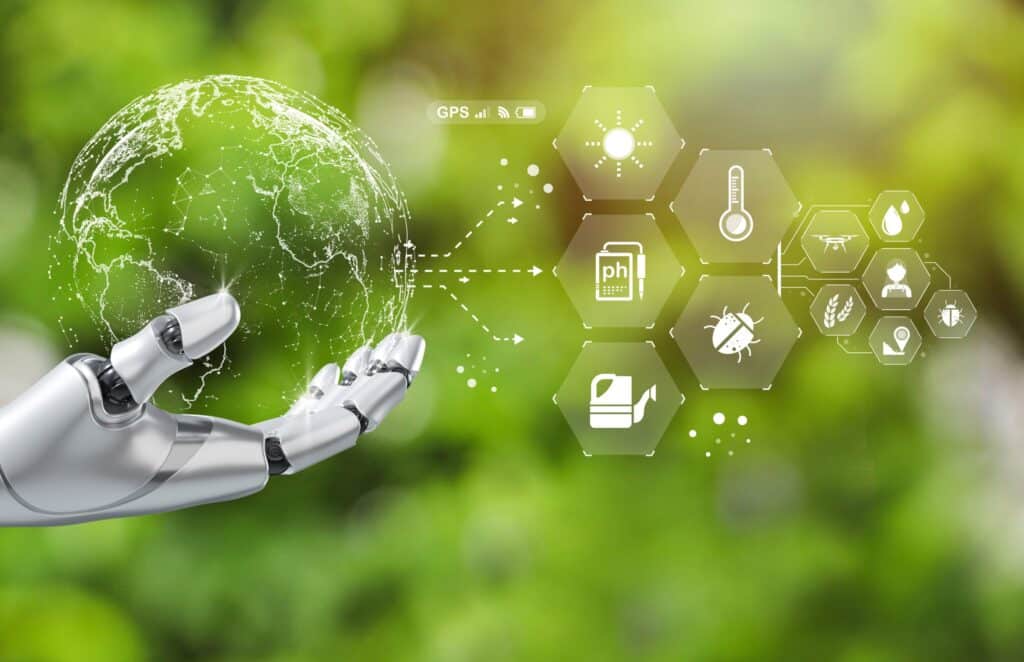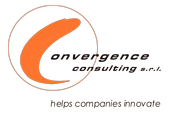 In an era where change is the only constant, sustainability transcends the realm of trendy jargon to become an essential business ethos. Around the world, companies are waking up to the critical need for embedding sustainable practices within their product design and development frameworks. At Convergence Consulting, we’re not just keeping pace with innovation but leading the charge. Our strategic use of Artificial Intelligence (AI) redefines sustainable product design and development boundaries. Join us as we delve into the transformative role of AI in shaping a more sustainable future in our sector and highlight why it’s imperative for businesses to integrate this groundbreaking technology.”
In an era where change is the only constant, sustainability transcends the realm of trendy jargon to become an essential business ethos. Around the world, companies are waking up to the critical need for embedding sustainable practices within their product design and development frameworks. At Convergence Consulting, we’re not just keeping pace with innovation but leading the charge. Our strategic use of Artificial Intelligence (AI) redefines sustainable product design and development boundaries. Join us as we delve into the transformative role of AI in shaping a more sustainable future in our sector and highlight why it’s imperative for businesses to integrate this groundbreaking technology.”
The Intersection of AI and Sustainability in Product Design
Convergence Consulting has been providing best-in-class consulting engineering services since 1998, and we have seen firsthand how technology can shape the future of product design and development. AI is one such technology that is revolutionizing the way we approach sustainability.
- Design Optimization with AI: AI-powered algorithms can analyze vast amounts of data to optimize product designs for sustainability. Whether reducing material waste, improving energy efficiency, or minimizing environmental impact, AI can suggest design modifications that make products more sustainable without compromising performance. This benefits the environment and saves costs in the long run.
- Life Cycle Assessment (LCA): One of the critical aspects of sustainable product development is assessing its entire life cycle. AI can perform complex LCA calculations, considering factors like raw material extraction, manufacturing, transportation, and end-of-life disposal. With AI, we can identify areas where improvements can be made to reduce a product’s carbon footprint and environmental impact.
- Supply Chain Management: Sustainability isn’t just about the product itself but also the supply chain. AI can optimize supply chain logistics, helping businesses reduce emissions, minimize waste, and improve efficiency. We can significantly contribute to the environment by making supply chains more sustainable.
AI-Powered Sustainability in Product Designs
Let’s take a closer look at how Convergence Consulting, in collaboration with AI, has been able to make a tangible impact on sustainability in product design and development:
- Reducing Material Waste: We’ve optimized product designs using AI-driven simulations to minimize material waste during manufacturing. This not only reduces costs but also helps conserve valuable resources.
- Energy Efficiency: AI algorithms have enabled us to design more energy-efficient products. Whether in the automotive industry, where we’ve improved the fuel efficiency of vehicles or in consumer electronics, where we’ve extended battery life, AI plays a crucial role in reducing energy consumption.
- Environmental Impact Reduction: By conducting detailed LCAs with the help of AI, we’ve identified areas where products can have a lower environmental impact. This includes using eco-friendly materials, choosing more efficient manufacturing processes, and reducing carbon emissions during transportation.
The Future of Sustainable Product Design
Integrating AI into sustainability efforts is not just a trend; it’s the future of product design and development. Businesses that embrace AI-driven sustainability will reduce their environmental footprint and gain a competitive edge in the market.
- Advanced Materials and Recycling Innovations In the coming years, sustainable product design will significantly focus on advanced materials and recycling innovations. This means the development of materials that are not only environmentally friendly but also highly functional. For instance, we can expect more bio-based plastics, recycled metals, and innovative composites that reduce the reliance on traditional, resource-intensive materials.
- Circular Economy Principles: Adopting circular economy principles will become increasingly mainstream. This approach encourages the continuous use and recycling of products and materials, minimizing waste and reducing the environmental impact. Companies will need to design products with disassembly and recycling in mind, creating closed-loop systems that extend the lifespan of products.
- AI-Driven Design Optimization: Artificial Intelligence will continue to play a pivotal role in sustainable product design. AI algorithms will become even more sophisticated, allowing for real-time analysis and optimization of designs to minimize waste, energy consumption, and environmental impact. This means products will be eco-friendly, more efficient, and cost-effective.
- Consumer Demand for Sustainability: Consumers are becoming increasingly conscious of the environmental footprint of their products. The future of sustainable product design will be driven by consumer demand for transparency and eco-conscious choices. Businesses prioritizing sustainability in their designs will have a competitive edge in the market.
- Regulatory and Certification Standards: As sustainability becomes a top priority for governments and organizations worldwide, we can expect to see the introduction of more stringent regulatory and certification standards. Companies will need to adhere to these standards to prove the sustainability of their products. This will further drive innovation in sustainable design.
- Collaboration and Industry Partnerships: The future of sustainable product design will be characterized by collaboration and industry partnerships. Companies will collaborate to share knowledge, resources, and best practices to advance sustainability goals. Cross-industry collaborations will lead to innovative solutions that benefit everyone.
- Localized and Customized Production: Advances in technology, such as 3D printing and digital manufacturing, will enable localized and customized production. This means products can be produced closer to the point of consumption, reducing the environmental impact of transportation. Customization also reduces waste by ensuring products meet specific consumer needs.
- Renewable Energy Integration: Sustainable product design will increasingly integrate renewable energy sources. This includes products designed to harness solar, wind, or kinetic energy to power themselves or contribute to the energy grid. This reduces reliance on fossil fuels and lowers carbon emissions.
In conclusion, the future of sustainable product design is filled with opportunities and challenges. It requires a commitment to innovation, collaboration, and a deep understanding of the environmental impact of products. At Convergence Consulting, we are dedicated to being at the forefront of these developments, helping businesses navigate the evolving landscape of sustainable design. Together, we can create products that are functional and eco-friendly, contributing to a more sustainable and prosperous future for all.
Conclusion
The marriage of AI and sustainability is a powerful combination that holds the key to a more eco-friendly and efficient future. At Convergence Consulting, we are proud to be part of an industry at the forefront of this transformation. AI-driven sustainability is not just a goal; it’s a responsibility we owe to our planet and future generations. Embrace AI, embrace sustainability, and let’s shape a brighter, greener future together.
Convergence Consulting: Our DNA
Convergence Consulting, Led by CEO Roberto Pasceri, is a pioneering force in the realm of consulting engineering services. Since our foundation in 1998, we have been devoted to our commitment to excellence, delivering best-in-class engineering services in a rapidly evolving world where product design and development stand as critical pillars for a successful business.
Nestled in the historic city of Bologna, Italy, and extending our expertise to the vibrant landscapes of Bangkok, Thailand, through our partner company, Innovation Code Ltd., we represent a synthesis of tradition and innovation.
At Convergence Consulting, a holistic approach is the key to successful product development. Our services span the entire range of the product lifecycle – from the beginning stages of concept development through meticulous analysis and design to the actualization of prototypes and the delivery of finished turnkey products. This comprehensive approach ensures that we not only meet but exceed the expectations of our diverse clientele.
Our unique model, the Convergence Excellence Innovation Network (C.E.I.N), sets us apart, embodying a flexible and integrated global network. This model enables us to harness the collective expertise of over 20 seasoned engineers, ensuring that each project is imbued with cutting-edge innovation and technical proficiency. Whether in-house at our headquarters or outsourced to client company premises, our team can handle any project request with unparalleled expertise and dedication.
As we navigate the constantly evolving landscape of engineering and design, our goal remains steadfast: to be the beacon of innovation and excellence in the consulting engineering domain. Through this article, we invite you to delve deeper into the world of Convergence Consulting, where each project is a journey of discovery, innovation, and unparalleled expertise.
Call to Action
At Convergence Consulting, we are committed to helping businesses harness the power of AI for sustainability in product design and development. If you’re looking to make your products more sustainable, reduce costs, and improve your environmental impact, contact us today. Together, we can create a greener, more sustainable future.

Leave a Reply